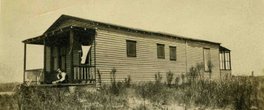A quick breakdown of ancestors who fought in the revolutionary war.
MAINE
From the Old Broad Bay Bund and Blatt, 1995 Vol 4, Issue 4, pages 92-98
"Waldoboro in the Revolution"
1776 4 Jul The Declaration of Independence was printed and sent to all the ministers of the Gospel in the State,
to be publicly read by them on the first Lord's day after its reception, and to be recorded by the town clerks
in their respective books. Neither of these requests were carried out in Waldoboro. Dr. Schaeffer ... was
the minister at the time and would neither read it nor allow it read in the old meeting house, the only public
place then in Waldoboro.
1776 July Through the influence of Jacob Ludwig and Andrew Schenck, it was translated into the German
language and by them read to the people, who everywhere received it with rejoicing.
MARYLAND
While I can't actually connect our family to him, in 1776 Lieutenant James Tibbitt of the Maryland Privateers sailed a brigantine called The Wild Duck from the Dutch West Indies to the head of the Elk River (now Elkton Maryland). The ship was packed with gunpowder and shot; most of that was sent to support General Washington's activities in New Jersey. The ship itself was taken to Philadelphia for a refit by joseph Humphries, and was re-christened as the USS Lexington. Tibbitt carried letters of Marque throughout the war, for the sloop Independence, and the brigantine Sturdy Beggar.
James is a Tibbitt family name in our lineage; and my Tibbitt line lived between the Sassafras and Elk rivers in Maryland (Cecil County). He is certainly a relative, if not a direct ancestor.
PENNSYLVANIA
Godfrey Felten served in Captain Phillip Waggoner's Company of the 2nd Regiment of Foot. Godfrey is my 5th great-grandfather.
There was a John McDermond of Chester County; he is the leading candidate to being the father of James McDermond, and John collected a Revolutionary War pension. But that's all I've managed to uncover. If this is an ancestor, this would be the sole entrant from my father's line.





